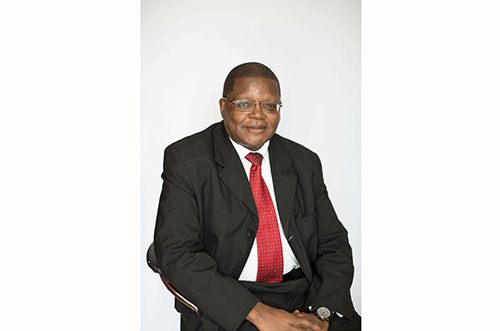When higher education institutions launch new programmes, one of the ways which they cite in assuring quality is regularly subjecting these qualifications to external examination. External examination means that specialists in the new qualifications drawn from universities within the country and outside the country are solicited to rigorously evaluate the quality of the content of the programmes and the quality of the assessment of students’ assignments and examinations in these areas of study. It is also a requirement from the higher education regulatory bodies that the new programmes go through an evaluation exercise by subject experts from other higher education institutions for the purposes of benchmarking and internationalisation of the curricula.
According to Smidt’s (2015) observation, internationalisation in higher education has led to “a growing demand for accountability and transparency which has, in turn, led to developing a quality culture while addressing the challenges of globalised higher education. In a practical sense, quality assurance reviews provide external, third party, independent, objective insights”.
However, questions which beg honest answers are: Is this quality culture found in all higher education institutions? Do academics take evaluation reviews from external examiners seriously? Can academics provide evidence that they have conformed to the review suggestions from external examiners? I attempt to answer these and other subtle questions on the external examination process which is the backbone of any serious high education institution.
Reputable higher education institutions have put stringent mechanisms that assure quality and accountability in their examination systems and processes. Academics have to prove to their supervisors that they have implemented all the suggestions from external evaluators or reviews. If a particular academic repeatedly receives bad reports from external examiners, this is likely to lead to dismissal. Literature reveals that some of these reputable world class universities are so strict that those academics who do not take the external review of examinations seriously do not last at these institutions. It is also revealed that these universities require academics to prepare three or more sets of examinations per course they teach and dispatch these sets to the external examiner who will choose the set to be written by students in a given examination sitting. The argument provided for this measure is that the process provides objectivity by giving the external examiner is given the power to choose which of the submitted examination papers should be written by the students. In other words, this is a case of saying to the examiner, you cannot have your cake and eat it. Such practices have scored resounding success in terms of quality maintenance and improvement in these higher education institutions. In these cases, it is feasible to conclude that the quality checks lead to a culture of quality and accountability in these higher education institutions. Examiners can provide tangible evidence that they are conforming to the set standards and procedures to assure quality in their academic undertakings.
In his study titled ‘Setting, moderating and marking university examinations: A comparative review of policies from universities in East Africa and the United Kingdom’, Ombasa (2015) concluded that “in moderation, it was common practice that examinations have to be moderated both internally and externally before they are administered.” When it comes to internal moderation, there is evidence that proves that some higher education institutions do not practice what they preach. While they put in black and white that subject specialists will do internal moderation of examination papers, for some reason, there is a mismatch between the competences of the examiner and internal external examiner. One example I found disturbing is that you find universities using academics in arts and humanities to review papers in science and medicine. While there is emphasis on interdisciplinary in education, it is obvious that the incongruency mentioned above is unacceptable. I have noticed that what leads to this situation in most cases is shortage of suitably qualified staff members; institutions end up using whoever they have to do whatever academic activity, leading to a hotchpotch. In such cases, there is no quality and accountability. Similarly, some academics do not implement the comments they receive from external examiners or reviewers. There is no will power from these academics to sit down and consider the valuable points that they receive to improve their papers. It can also be argued that some lecturers’ arrogance and negligence have affected higher education negatively. In the end, it is the client, the student, who suffers by receiving a half-baked qualification. It is important to note that the whole purpose of internal and external examination or moderation is to guarantee that students’ qualifications are more or less at par with similar qualifications offered in other higher education institutions. This assurance is needed for students who get the qualifications to use them to get jobs or advance their education in other institutions. Since, according to Ombasa’s findings, “Universities, especially in Africa, are today faced with the challenge of producing competent and highly skilled manpower to serve the needs of humanity in the 21st century”, there is great need for our universities to use both internal and external examination to improve the quality of the qualifications they offer. It has been proved beyond doubt that external examination is a crucial process in improving the performance of lecturers and the qualities of disciplines in departments and faculties. When all is said and done well, it is our students who gain the necessary skills for the benefit of humanity.
* Professor Jairos Kangira is a professor of English at the University of Namibia. Email address: kjairos@gmail.com


